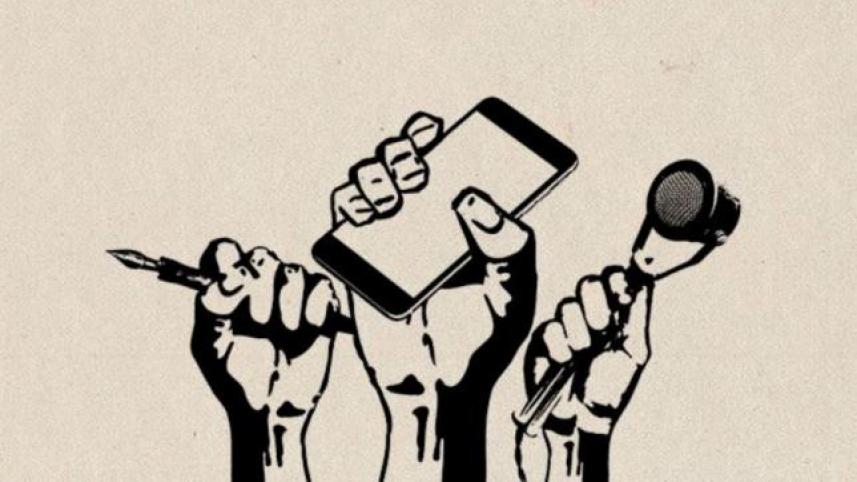Shrinking civic space online is deeply worrying

A new report released by the international think tank Freedom House has confirmed what the local media, members of civil society, and people in general feared would happen and have been warning about: Bangladesh's internet freedom fared worse during the pandemic than the previous years. Bangladesh has been classified as having "partly free" internet in Freedom House's "Freedom on the Net 2021" report. The country received a score of 40 (0 being the lowest and 100 being the highest) this year, which was two points lower than its previous score.
Even though the country scored somewhat higher in previous years, Bangladesh has never graduated from the bracket of having a "partly free" internet. But the report specifically highlighted that in the last one year, the country has blocked access to social media, blocked access to websites, shut down the internet, arrested and physically assaulted internet users, and conducted technical attacks on the internet—hence the lower score this year.
The report also pointed to the newly proposed data protection bill as including "extremely broad and far-reaching investigative powers, including the power to obtain access to all personal data and access to any premises." This, together with pre-existing roadblocks to the freedom of speech and the press both online and offline, means that citizens will find it harder to protect their rights going forward.
Only recently, we saw how the Bangladesh Financial Intelligence Unit (BFIU) asked all scheduled banks to provide details on bank accounts of top office-bearers of four journalists' organisations—without bringing any specific allegations against them—which the Editors' Council said was motivated and historically unprecedented. Therefore, should the new data protection bill come into effect, given the broad and far-reaching investigative powers that are being planned in the bill, there should be legitimate concerns about what it will ultimately mean for people's privacy and other basic rights.
Add to that the biggest concern highlighted by the report: the shrinking space for free speech in cyberspace. At a time when civilisation is transferring more and more of itself onto the internet—by doing business, communicating, learning, and other activities—the fact that people's voice online is being increasingly curtailed is extremely detrimental for societal well-being and human rights. It is also a threat to democracy. Which is why cyberspace needs to be freed from the increasingly intrusive surveillance and legislation being pushed by the government. This report is another grim reminder that we are quickly reaching a point where online freedom may soon cease to exist. Now would be a good time to turn back.



 For all latest news, follow The Daily Star's Google News channel.
For all latest news, follow The Daily Star's Google News channel.
Comments